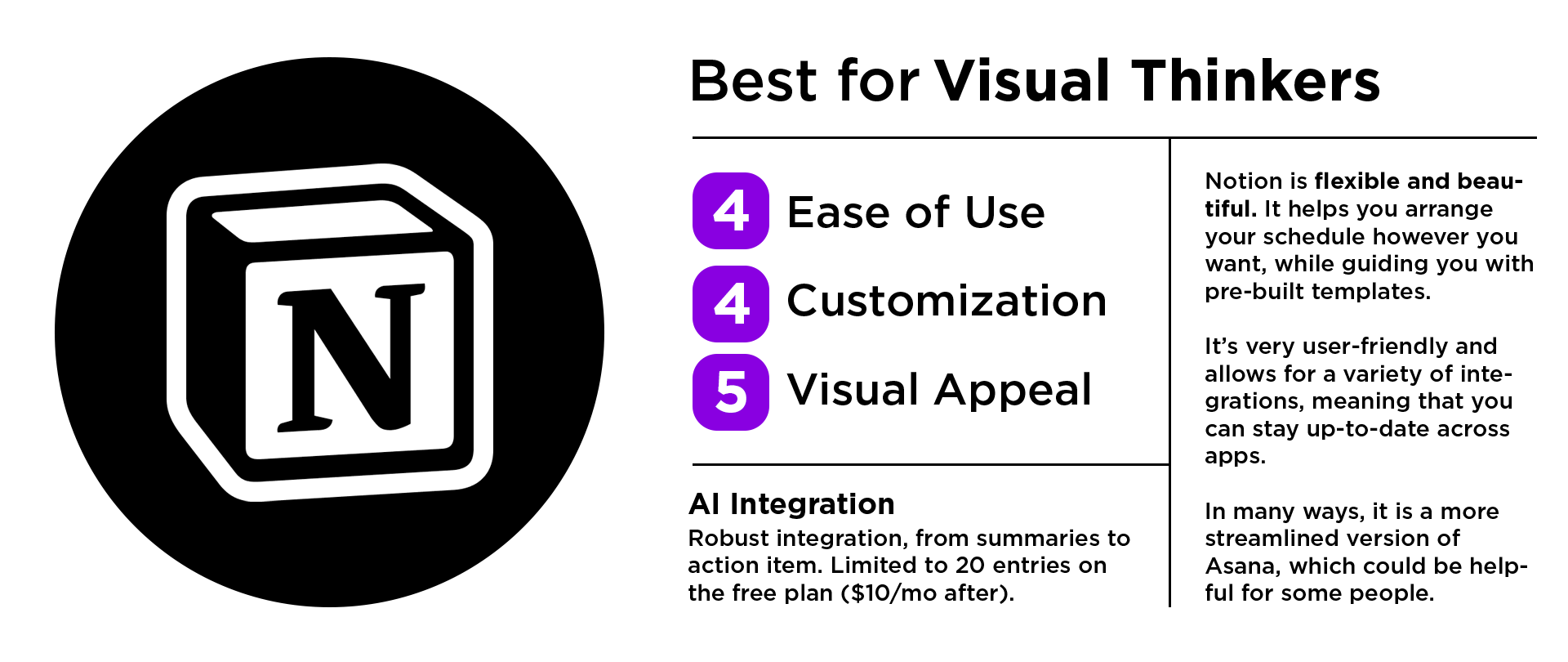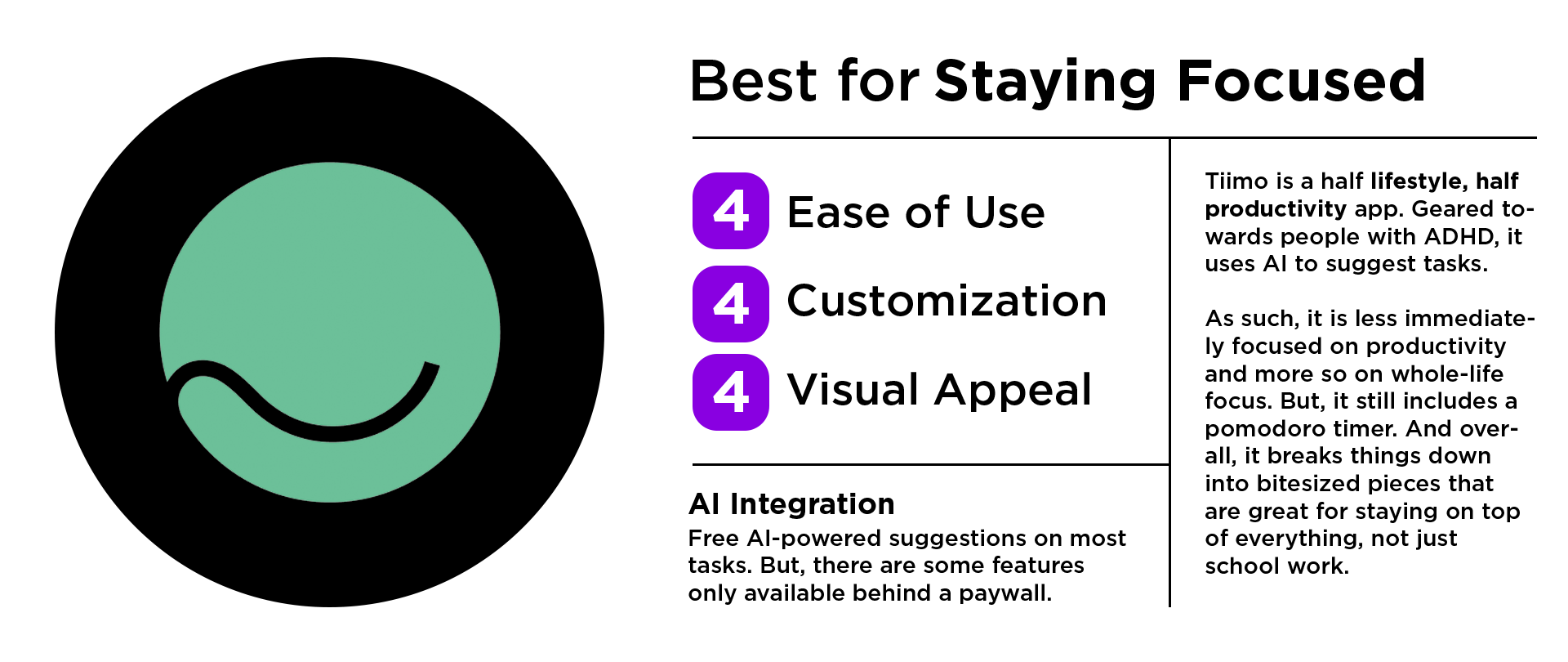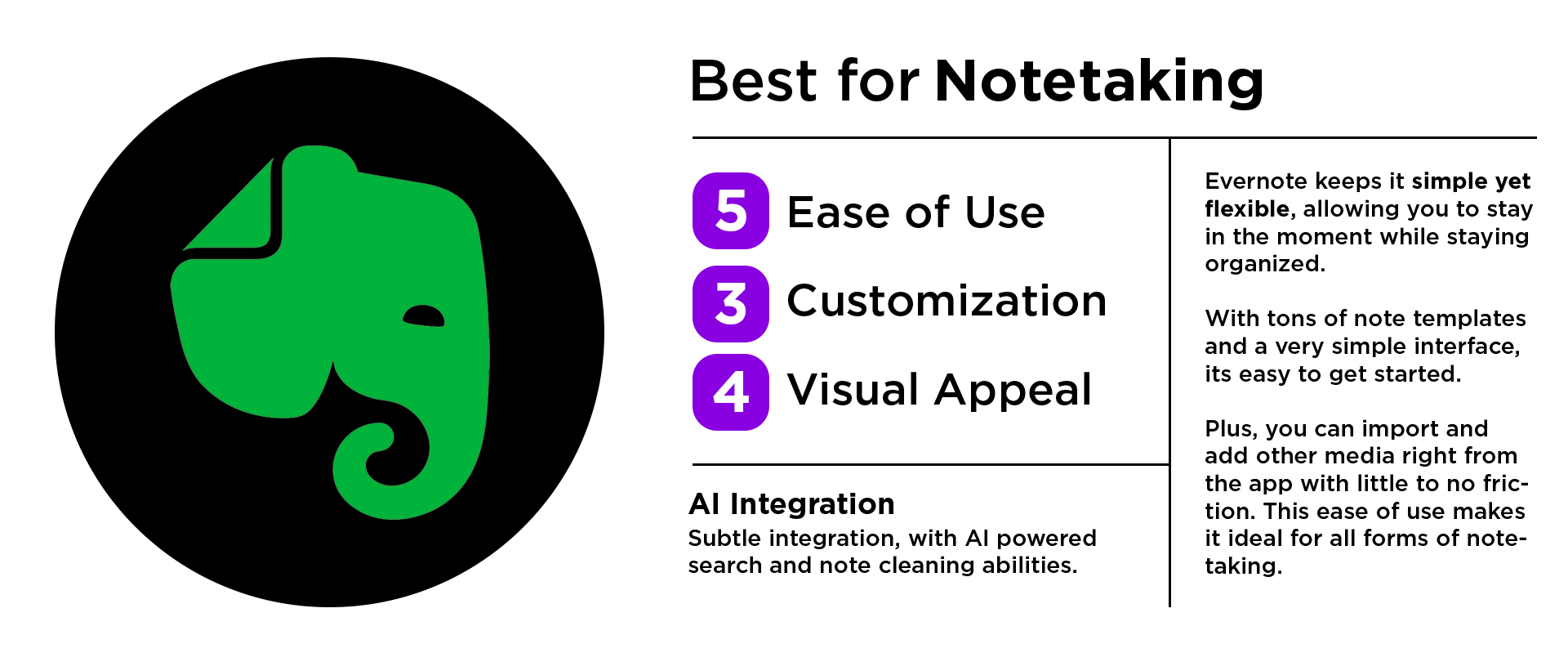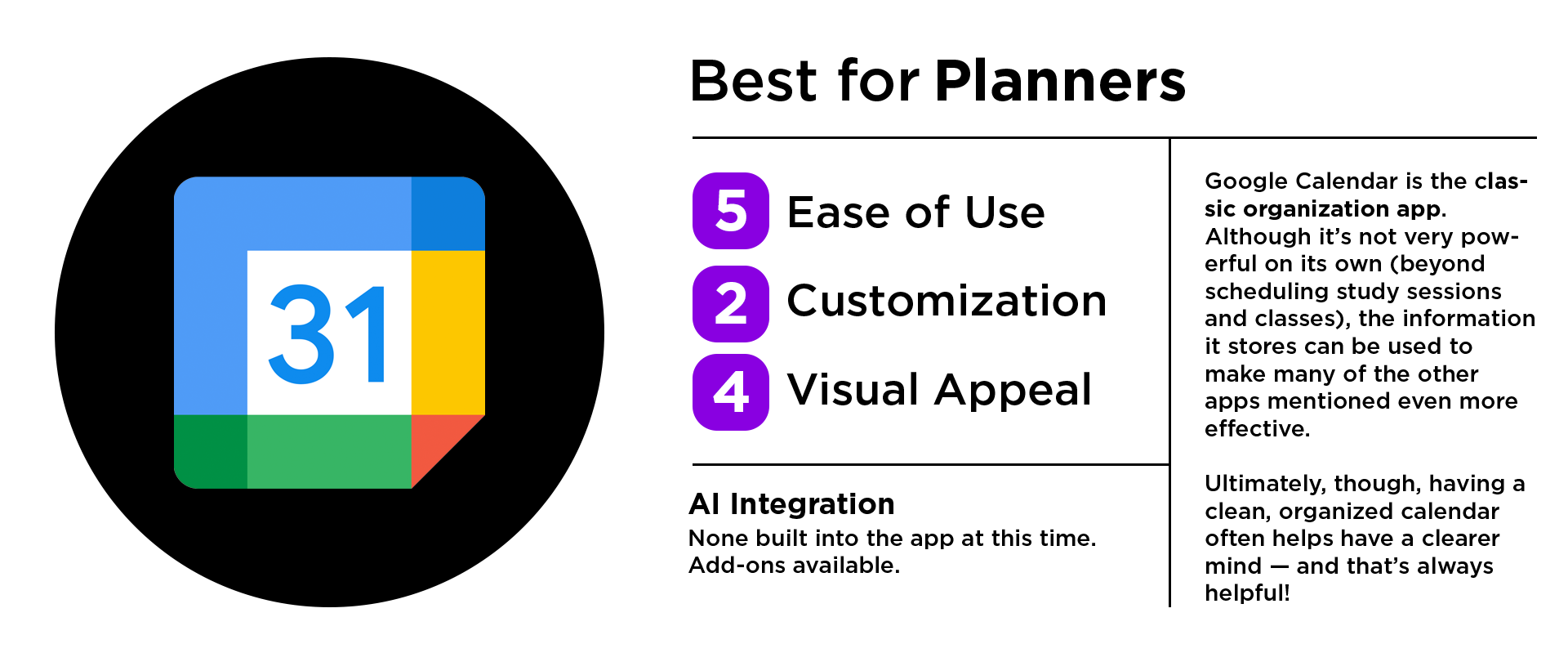“Stay organized” was always one of the biggest pieces of advice people gave me going into college. But if I’m being completely honest, I wasn’t sure what that really meant in the college context, and I often overthought it. As a result, over the past four years, I’ve tried a lot of organization apps. These are my top five.
Although my grades are largely subjective, I do think that they offer some insight into the benefits and downfalls of each of the organization apps listed below. Some are more customizable but harder to grasp, and others are built for a single purpose and are very simple as a result. The only way to truly know what works for you is to try them yourself.
Personally, I like being able to combine all of my work, personal, and school tasks from different lists into one, while integrating outside apps. That’s why I most often use Asana after I outgrew Notion. But, I’ve more recently found that Tiimo and Evernote work better for more specialized use cases. And of course, I had to include Google Calendar!
I’ve also included a section on artificial intelligence (AI) integration for each organization app. They haven’t all hopped on the bandwagon yet, but some have, and it’s very helpful in specific instances. I encourage you to explore these offerings to determine how to better streamline your workflow and stay more organized!
1. Notion
Notion is best for visual thinkers. It is flexible and beautiful. It helps you arrange your schedule however you’d like it, and it offers premade templates.
Highlights
- User-friendly
- Integration variety, including AI
AI integration is robust, but only 20 entries are available on the free plan.

2. Asana
Asana is best for power users. The app was designed for user customization. It is best for helping you balance a busy life, but it can be difficult to set up.
Highlights
- Highly customizable
- Effective for managing work, school, and personal to-dos
Asana’s AI integration requires a monthly plan.

3. Tiimo
Tiimo is a productivity and lifestyle app that’s best for staying focused. It offers many free AI tasks suggestions, so it is geared toward supporting people with ADHD.
Highlights
- Pomodoro timer to boost productivity
- Bite-size task breakdown
Most tasks allow free AI-powered suggestions. Some features are behind a paywall.

4. Evernote
Evernote is best for note-taking. It’s interface is simple but flexible, allowing you to remain present while staying organized.
Highlights
- Myriad note templates
- Simple interface
- Import capability
Evernote has subtle AI integration with AI-powered search and note-clearing capabilities.

5. Google Calendar
Google Calendar is best for planners. It is the classic organization app. It may not be very powerful on its own, but it can enhance the efficacy of the other apps.
Highlights
- Schedule study sessions and classes
- Organized schedule, clearer mind
Google Calendar does not have any AI integrations built into the app at this time, but add-ons are available.




